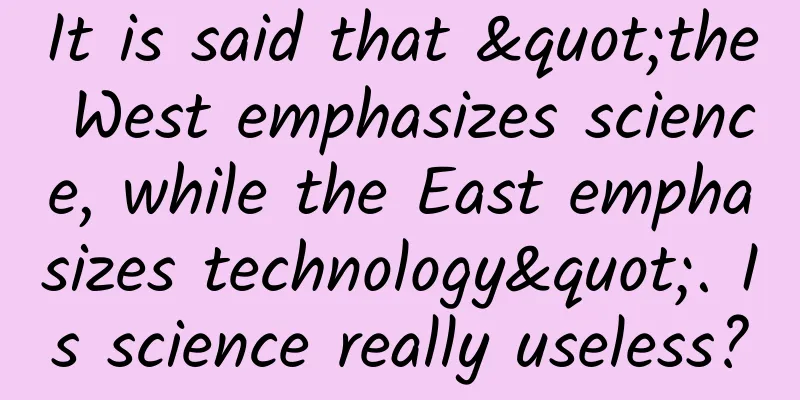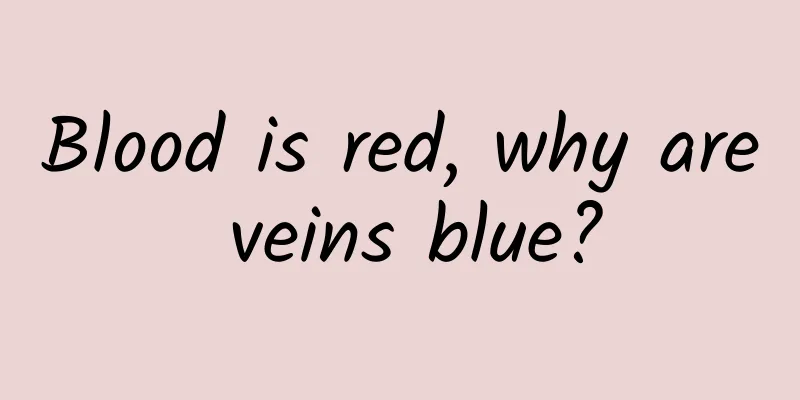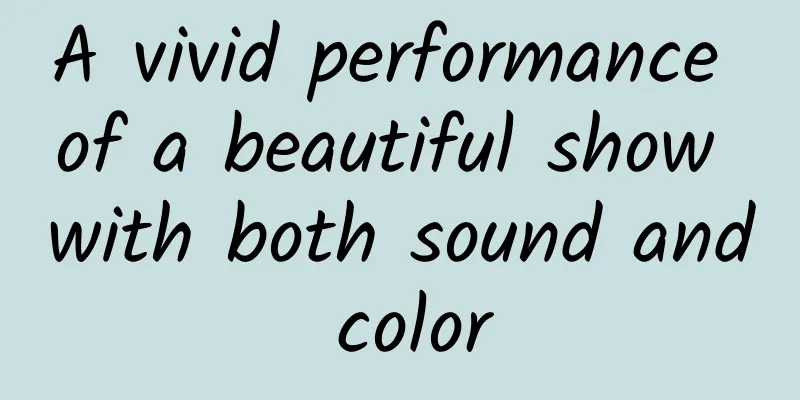It is said that "the West emphasizes science, while the East emphasizes technology". Is science really useless?

|
The 26th roundtable dialogue on Gezhi Lundao in the Bay Area November 8, 2023 · Nansha, Guangzhou How to view the relationship between inheritance and innovation dialectically? Yu Lefu· Gaohu player From an artistic perspective, of course, tradition is more profound. You can say it is the source of our creative inspiration or a kind of inner belief. It is like the basic skills of everything we have. And for people who engage in art, each generation has more and more things to learn and inherit. But from the perspective of innovation, everyone lives in the present, and he must have some inner desires and impulses that traditional culture cannot give him, or things he wants to release and express, so I think there is no clear boundary between inheritance and innovation, they complement each other. From an artistic perspective, for example, I often mix tradition and modernity to nourish myself. If it is just tradition, you may feel that your life has been wasted, because you are just accepting things from your predecessors; but if it is all innovation, you will feel that you are a bit empty and unstable, because your foundation is not solid. So I think tradition and innovation are actually an eternal theme. They have their own missions and weights in all walks of life. The key is to see how we practitioners face and control them. But in general, both are eternal. Ye Jianfei, Associate Professor, School of Ecology, Sun Yat-sen University I think inheritance is to inherit and carry forward the old generation, such as plant taxonomy or other very traditional disciplines. It is precisely because our predecessors have a lot of accumulation that we can innovate on the basis of their accumulation. So there is no innovation without inheritance. If we always sit on the merits of our ancestors and never innovate, it will be difficult for us to move forward. So I think inheritance and innovation interact with each other. Inheritance allows us to stand on the shoulders of giants. For example, many theoretical problems have actually been raised by the older generation of scientists, but we will use some new methods, such as in the field of molecular biology, genomic technology, and even the more popular single-cell sequencing technology, which can be used to solve the very basic problems in nature that we often talk about. For example, how many species of organisms are there in the world, and what is the relationship between them. I think inheritance and innovation are not contradictory. In my own work, I also do this. We must stand on the basis of our predecessors, and at the same time, we must be good at learning some new methods, rather than being complacent and always doing the scientific problems that our predecessors did. We must not reject new technologies and new methods, just like when we face the popular ChatGPT or AI technology now, we should not think of it as a flood and beast, we should embrace it, so that we can use some technology to answer scientific problems that could not be answered before. Yu Lianxiang, Professor-level Senior Engineer, Institute of Resource Utilization and Rare Earth Development, Guangdong Academy of Sciences I think inheritance and innovation should complement each other, especially in our scientific research industry, these two words go hand in hand. Innovation without inheritance is just empty talk. If you start everything from scratch, then when your "innovation" comes out, others will have already run ahead of you. If you only inherit and don't innovate by breaking away from the thinking of your predecessors, then your technology will not improve, and you will always be behind others. Therefore, in the scientific research industry, inheritance and innovation must complement each other and go hand in hand. There has always been a tradition in our unit. For example, if a doctoral or master's student comes to our unit, he will definitely be taught by a master for two to three years to five years. Only after you have learned the good techniques and thinking of these masters, will you have inspiration in this area. If you don't have this inheritance, it will be difficult for you to come up with inspiration. Tong Xin, Researcher at the Institute of High Energy Physics, Chinese Academy of Sciences As a scientific researcher, innovation is what I need to do every day, no matter where I am. Every day we hope that there will be some breakthroughs in the existing knowledge of mankind, but this breakthrough is based on all the knowledge. So where does our existing knowledge come from? This is inherited, from the earliest physicists to Newton and Einstein. Every physical theory we have mastered and every little physical knowledge we have learned are actually the answers and inheritance given by scientists in human history. But I think there is another aspect of inheritance. As a researcher at the Institute of High Energy Physics of the Chinese Academy of Sciences (IHEP), I will keep in mind the pursuit of high energy physics by the older generation of scientists at IHEP. They represent our country's pursuit of high energy physics research. This spiritual inheritance has been passed down since the establishment of the institute 50 years ago. I will also pass it on to the next generation of scientific researchers, and do my part to help our country become self-reliant and strong in science and technology. Li Jianping, Senior Engineer, Shenzhen Institutes of Advanced Technology, Chinese Academy of Sciences When it comes to understanding inheritance and innovation, I would like to give you two interesting examples related to "textbooks". I am a football fan and have played professional football matches. In the field of football, we often say that a certain star has scored a textbook goal. This is a classic, a skill inheritance from training and learning. Our scientists hope to make some scientific discoveries, inventions and creations that rewrite textbooks, which is innovation. For plankton taxonomists, inheritance is not easy. The older generation of plankton experts used one eye to look at the microscope and the other eye to look at the picture album. They recorded the typical characteristics of the phyla, class, order, family, genus and species of plankton by hand-drawing, and described them in detail with text, laying the foundation for taxonomy and spreading relevant knowledge. But today, we strive to use innovative methods to let the microscope dive under the water and directly record the beautiful and real images of plankton. This is our innovation. In addition, as we all know, the imaging principle of microscopes is based on optical technology. For the optical discipline that I studied, today's AI can use computers to make the optical capabilities more powerful through calculations. To some extent, this is also a kind of inheritance and innovation. Students may submit various degree theses in the future, and there will often be a thank you section at the end, thanking their mentors, brothers and sisters, etc. More than a decade ago, when I submitted my doctoral thesis, I wrote in the last paragraph: "Thanks to the great scientists in human history, they guide me like the stars in the sky." It is through the study and application of the knowledge they created that I have some innovations in this doctoral thesis. Li Qiye, Executive Director of the Digital Earth Institute, BGI Life Sciences Institute I also think that inheritance and innovation are actually dialectically unified. For example, we who are engaged in scientific research often say that we need to stand on the shoulders of giants to make new scientific discoveries or technological breakthroughs. This is actually emphasizing the importance of "inheritance to innovation." If innovative things are valuable, they are naturally worth inheriting. But here, I would like to add one thing. Inheritance is certainly important, but we need to look at what has been passed down with a critical eye. Our ancestors put forward many great ideas and concepts, and also made many important inventions and discoveries, but are all these ideas and theories correct? Are these inventions and discoveries still applicable to the present era? Generally, they are not. So we should treat what has been passed down with a critical spirit, inherit the essence of it, and also think about its shortcomings. Moreover, in actual work, when we can realize that the knowledge we have passed down is actually insufficient and flawed, then we will know where the innovation points and breakthroughs are. There are no boundaries in life, everything is possible. Is the result important, or is the process more important? Li Qiye, Executive Director of the Digital Earth Institute, BGI Life Sciences Institute When we are studying for a master's degree or just starting out as an apprentice, it may take a long time and may not necessarily achieve important results in the end, but you cannot deny all the experiences because of this. I think the process is the most important, because no matter whether it is successful or failed in the end, it is actually accumulating experience for your future success. In this context, I think the process is more important. However, we also encounter another situation, such as taking on a very important project, which is clearly in competition with other countries. At this time, there is no doubt that the result is the most important. In this case, there is only first place, no second place. No matter how difficult the whole process is, failure is failure, and failure means nothing. So I think this should be dealt with on a case-by-case basis. Li Jianping, Senior Engineer, Shenzhen Institutes of Advanced Technology, Chinese Academy of Sciences I firmly believe that the process is more important. Su Shi has a poem that goes, "We are like a mayfly in the universe, a grain of sand in the vast ocean." As a tiny individual, we are just insignificant whether placed between our planets or in the long river of history. So I think Enjoy your everyday is more important than the result. Tong Xin, Researcher at the Institute of High Energy Physics, Chinese Academy of Sciences The answer should be analyzed on a case-by-case basis. If you extend the timeline and look at your entire life or career, like me doing scientific research, you need to set an ultimate goal, what kind of person do you want to be in the future, what kind of things do you want to do, and you work hard to move in that direction. With a goal in mind, you can move forward well in the dark. From this perspective, the result and the process are equally important. But in some cases, the result is very important. For example, in our middle school entrance examination and college entrance examination, the results are the only measure, and you must work hard to climb up through various methods. When we enter the society, which is more important, the process or the result, we also need to think about it. Yu Lianxiang, Professor-level Senior Engineer, Institute of Resource Utilization and Rare Earth Development, Guangdong Academy of Sciences It is impossible to say which one is more important. There should be a dialectical relationship between the two. First of all, we have to think and think. If we don’t think and work hard blindly, we may make mistakes in some steps. For those of us who do scientific research, every detail will determine the success or failure of scientific research results, so the process is definitely very important. After hard work, we may get relatively good results, or we may get nothing. For example, some scientists may not get good results after thousands or tens of thousands of experiments. From this perspective, the process is very important. We can separate the true from the false in the process, continue to carry forward some good results, and optimize the experimental process for some bad results. Ye Jianfei, Associate Professor, School of Ecology, Sun Yat-sen University In my heart, I think the process may be more important, because we can control the process, but we often cannot control the result. There is also a time scale issue. We often say that "quantitative change leads to qualitative change". The process is actually the accumulation of quantitative change. If we grasp the process well and devote ourselves to it, the result should be natural. We don't have to worry about what the result will be. If you really enjoy it, such as a year or a few months, the result may not be very good on a small time scale, but on a longer time scale, such as ten or twenty years, or even a whole life, it may be a different result. In general, I believe that a good process will definitely bring good results. Yu Lefu· Gaohu player This question is actually very ultimate, but I also think that the process is the most important, because we can definitely control the process. I think many successful people or people with aspirations should not choose their lives based on the results. The results sometimes change at different times or in different periods, because the results are often affected by various aspects of the times or ideology, including the outside world's evaluation of you. There are also some examples in art, such as the very famous "Butterfly Lovers" violin concerto, which was rejected when it came out, because the work describing the love between young men and women did not fit the theme of that era. Later, "Butterfly Lovers" became a classic of Chinese music, including Beethoven and Tchaikovsky in the past. They did not get any "results" in their lives. They were affirmed by later generations and given more precise artistic value, but these things may be different with the changes of the times. Of course, the field of art is different from many scientific fields or technical fields. I can only give an answer from the perspective of the field of art, so I think the most important thing is to pursue a lifestyle, not think about the results, and enjoy the process. There is a saying on the Internet that "science is useless and technology is useful". What do you think of this view? Yu Lefu· Gaohu player In fact, I used to hang out in the antique circle. They believe that you must achieve the goal of doing something "useless" (not for profit) to be successful. Because "useless" proves that you no longer care about interests, and can do everything without calculating gains and losses, and do it purely for your own enjoyment. Usually, you believe that you just like to play with this thing or art, even if it is empty, not something that can be seen, eaten, immediately converted into cash, or worth a certain amount of money. Of course, back to the question itself, I think the process from technology to science is a process of quantitative change to qualitative change. Supporting a soul through the accumulation of technology can reflect human civilization, and of course it may have risen to the category of science. Strictly speaking, science and technology should not be compared in the same dimension. For example, in the field of art, you have good basic skills and a solid foundation, but when performing music, you don’t show what music should have, or we call it playing the violin without musicality. This is actually equivalent to the relationship between technology and science. But when it comes to every field of science and the details, it is a technical job. We can only say that we generally understand the relationship between the two. As for usefulness and uselessness, I may not have the answer myself. Ye Jianfei, Associate Professor, School of Ecology, Sun Yat-sen University This question is very interesting, because my family often asks me: "What's the point of learning this?" Maybe the botany I am engaged in is useless in the eyes of most people, but in fact it is precisely this "uselessness" that is the most useful. The reason why our country is "stuck" in many aspects is that our basic science is too backward. In the past few thousand years, relatively speaking, more attention has been paid to technology, including the four great inventions, which are all technologies without many scientific elements. On the contrary, the West pays more attention to science. Darwin and Newton are representatives of Western science. I think this is an area where our nation may need to reflect. To give a more direct example, take botany. For example, Darwin's Origin of Species cannot be used to grow watermelons or apples. What use is it? When I communicated with some horticultural technicians, I found that they may be very strong in plant care, but sometimes they may make some very low-level and very basic mistakes. For example, when they prune plants, they will cut off the flowering buds of the plants. This is because they do not understand botany and do not know which bud will bloom in the future and which bud will grow leaves in the future. They originally wanted to prevent the plants from overgrowing by inhibiting nutrition, but they mistakenly cut off the flowering buds of the plants, resulting in a grainless harvest. Such as biology in agronomy, mathematics and physics in the computer field... These knowledge are the basis of many applied sciences or technical sciences. Only when basic sciences have accumulated to a certain extent, it is easier to make breakthroughs in technology. The chips that we are "stuck" by foreign countries are actually physics or mathematics problems. So I think both science and technology are useful. We should not think that only technology is useful because of the desire for quick success. We must know that basic science also has its meaning and value. Yu Lianxiang, Professor-level Senior Engineer, Institute of Resource Utilization and Rare Earth Development, Guangdong Academy of Sciences In my personal understanding, the so-called "useless science" should refer to basic scientific research, while "useful technology" refers to applied scientific research. In fact, this controversy is not only on the Internet, but also in our research institutes and universities. There are often two factions, one is basic theoretical research, that is, the academic faction, and the other is applied research, which is the practical faction. At every meeting, I would say "basic theoretical research and applied research should be equally important." Whether it is a research institute or university teaching, these two directions should be carried out side by side and walked on two legs separately. If some people like basic research, let them do basic research; if some people like applied research, let them do applied research. The two guide each other and make progress together. Basic research actually has a directional and guiding role. It guides applied research, but applied research is a result of basic research. If applied research is not guided by basic theoretical research, it will lose its foundation and it may be difficult to obtain an applied technology result. If basic research has always been superficial and cannot go deep into the actual practice to guide the research of applied technology, then its value will never be realized. As for applied technology research, it may be something that many of us can experience in our daily lives, while basic research is difficult to feel personally, and it is easy to give people a feeling of emptiness, but we cannot say that it is useless because of this. In fact, I think the two are equally important. Tong Xin, Researcher at the Institute of High Energy Physics, Chinese Academy of Sciences I am engaged in technical research. After returning to the Guangdong-Hong Kong-Macao Greater Bay Area, I am often asked a question: What is the use of your research? I usually answer "not much". Because I know what he wants to ask is where the polarized neutron research I am engaged in can be directly applied. In fact, I can answer it, but I will tell them that the application results of this technology are not today or tomorrow, but may be in five years, ten years, or even fifty years. In the last century, the two greatest inventions in physics were quantum mechanics and relativity. Both of them are inseparable from Einstein. Many people may not be able to feel it intuitively, but in fact, quantum mechanics and relativity are affecting our lives every day. All our electronic products are inseparable from these two theories, such as transistors developed based on quantum mechanics, or the GPS we use in our daily driving, which is actually inseparable from the guidance of relativity for our positioning. So it is not that these basic sciences are useless, but many people do not know when they can be used. Basic science is like the framework of a building. It builds this framework, and applications can build on it. We cannot say that science is more important and technology is less important, because the two complement each other. The progress and development of technology can lead to new scientific discoveries. For example, computers, lasers, etc. have also led to new scientific developments in recent decades. I believe that the progress of human society requires the joint development of science and technology. Only with joint progress can we push our lives, our understanding of nature and the universe to a newer and higher state. Li Qiye, Executive Director of the Digital Earth Institute, BGI Life Sciences Institute The saying "science is useless, technology is useful" actually shows us that they are both useful. I understand that the reason why science is useless is that people think it cannot immediately affect our lives or be transformed into productivity, so they think it is "impractical". But it is undeniable that the most advanced technological inventions often need the most cutting-edge scientific discoveries as a theoretical basis. Even scientific discoveries that cannot be transformed into technology are contributing to human understanding of their own position in the universe and the relationship between man and nature. Science originated in ancient Greece. Classical science and technology were indeed completely separate. People who study science think about the laws of nature and think and summarize the laws of nature by observing various phenomena, while people who engage in technological inventions focus on solving some practical problems. There is basically no intersection between the two. But in modern times, probably since Bacon proposed that "knowledge is power", the relationship between science and technology has become increasingly close. For example, scientific discoveries such as quantum mechanics and DNA double helix have directly led to the invention of new technologies such as lasers, semiconductors, and gene sequencing technology, and then the breakthroughs in new technologies in turn promote new scientific discoveries, and so on. So sometimes we joke that scientists are still studying scientific problems from a hundred years ago or even two thousand years ago, such as how did life originate? Where did we humans come from? How did human consciousness originate? What is its material basis, etc. These are questions that people have been thinking about and studying as early as the time of Aristotle. But today we are using the latest technical means to study them, because we believe that using new technical means, we have the opportunity to get a different answer, an answer that is getting closer and closer to the truth. |
<<: In just a few minutes, this AI agent can learn human expert behavior
Recommend
Helio X25 is not powerful enough? Is Meizu PRO 6 considered a high-end flagship?
Many people say that because of the Meizu Blue No...
Panjin SEO Training: Does optimizing website internal links really help keyword rankings?
In the process of optimizing website rankings, mo...
APP Promotion丨3 major marketing scenarios to explain the way of precise delivery
What are the advantages and disadvantages of main...
"Telekinesis" wins Oscars! Could Michelle Yeoh's multiverse really exist?
The first Asian-American Oscar winner for Best Ac...
Note 8 pre-sale price is hard to exceed 10,000 yuan. It seems Samsung has really hurt the hearts of Chinese consumers.
As the annual flagship new product, Samsung has h...
How to use the Golden Circle Rule to write a marketing promotion plan?
Double 11, Double 12, Christmas Eve and other fes...
Get ready for a new look for Android: Detailed explanation of the second developer preview of Android 12
In the early morning of March 18, the second Andr...
Hejun Strategic Thinking Course》Training Lecture Video
: : : : : : : : : : : : : : : : : : : : : : : : : ...
Tornado Data Archives: I like to create trouble in spring and summer, and I love to go to Jiangsu and Guangdong!
Recently, many places in the south have been expe...
Why is the omni-channel model the inevitable choice for mobile communications retail in the 5G era?
On November 18, 1987, Guangzhou Mobile Phone Bure...
The secrets of Internet TV industry development: exploration with the left hand and practice with the right hand
In recent years, with the advancement of smart TV...
Live streaming is currently the largest traffic pool on the mobile Internet. Can we use live streaming by internet celebrities to attract traffic?
From the current perspective, the hype value of i...
Seven strategies for mobile SEO in 2015
Introduction: With each new year, you must re-eva...
How to attract user traffic and trigger social communication?
Today’s topic is how to ignite social communicati...









